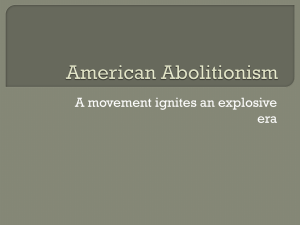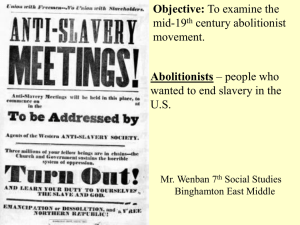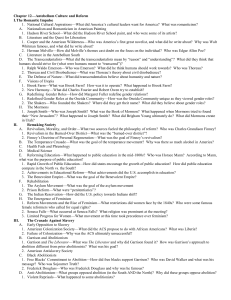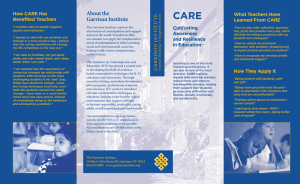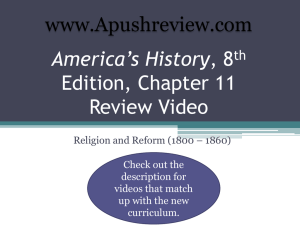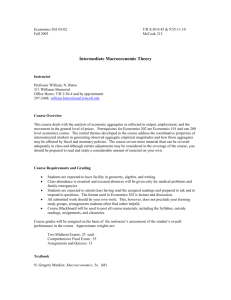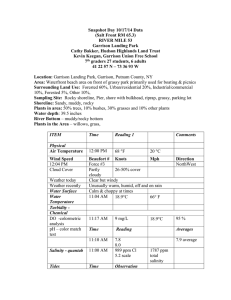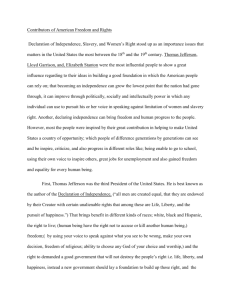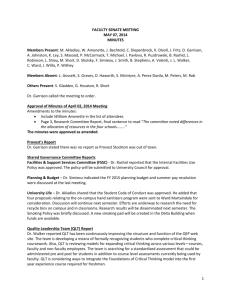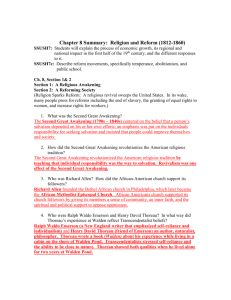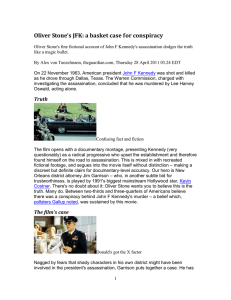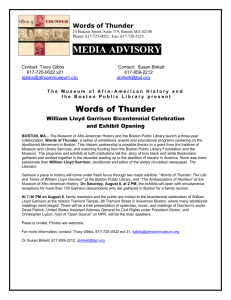11.1 - William Lloyd Garrison
advertisement
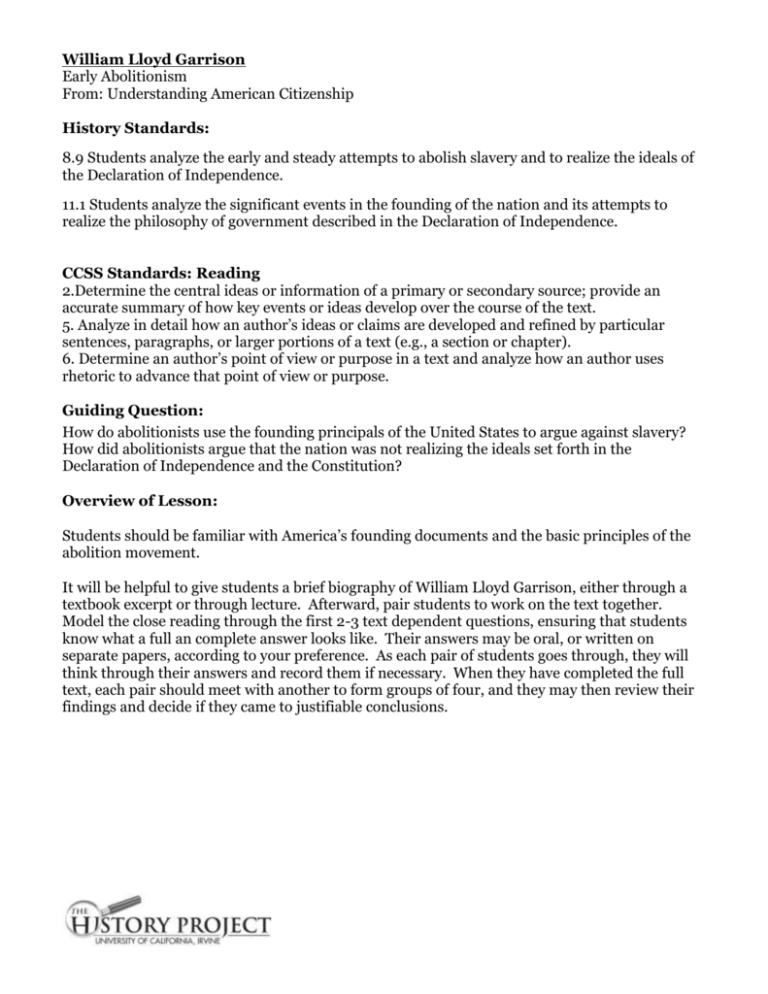
William Lloyd Garrison Early Abolitionism From: Understanding American Citizenship History Standards: 8.9 Students analyze the early and steady attempts to abolish slavery and to realize the ideals of the Declaration of Independence. 11.1 Students analyze the significant events in the founding of the nation and its attempts to realize the philosophy of government described in the Declaration of Independence. CCSS Standards: Reading 2.Determine the central ideas or information of a primary or secondary source; provide an accurate summary of how key events or ideas develop over the course of the text. 5. Analyze in detail how an author’s ideas or claims are developed and refined by particular sentences, paragraphs, or larger portions of a text (e.g., a section or chapter). 6. Determine an author’s point of view or purpose in a text and analyze how an author uses rhetoric to advance that point of view or purpose. Guiding Question: How do abolitionists use the founding principals of the United States to argue against slavery? How did abolitionists argue that the nation was not realizing the ideals set forth in the Declaration of Independence and the Constitution? Overview of Lesson: Students should be familiar with America’s founding documents and the basic principles of the abolition movement. It will be helpful to give students a brief biography of William Lloyd Garrison, either through a textbook excerpt or through lecture. Afterward, pair students to work on the text together. Model the close reading through the first 2-3 text dependent questions, ensuring that students know what a full an complete answer looks like. Their answers may be oral, or written on separate papers, according to your preference. As each pair of students goes through, they will think through their answers and record them if necessary. When they have completed the full text, each pair should meet with another to form groups of four, and they may then review their findings and decide if they came to justifiable conclusions. William Lloyd Garrison, “The American Union” (10 January 1845) Source: William Lloyd Garrison, The Liberator, January 10, 1845 reprinted in The Liberty Bell, American Anti-Slavery Society, 1845, pp. 230-238 Questions Look at the title of the article, what does it mean? Was America united in 1845? What does Garrison argue that the American Union is not? What does Garrison argue should be subverted? What will happen if the American Union is overthrown? Garrison suggests that the American Union is not an experiment in freedom, what is his evidence? What imagery did Garrison use to describe the U.S.? How does Garrison use the contents of the Constitution as a way to support his argument that the U.S. is not an experiment in freedom? Text Tyrants! confident of its overthrow, proclaim not to your vassals that the AMERICAN UNION is an experiment of Freedom, which, if it fail, will forever demonstrate the necessity of whips for the backs, and chains for the limbs of the people. Know that its subversion is essential to the triumph of justice, the deliverance of the oppressed, the vindication of the BROTHERHOOD OF THE RACE. It was conceived in sin, and brought forth in iniquity; and its career has been marked by unparalleled hypocrisy, by high-handed tyranny... Freedom indignantly disowns it, and calls for its extinction; for within its borders are three millions of Slaves, whose blood constitutes its cement, whose flesh forms a large and flourishing branch of its commerce, and who are ranked with four-footed beasts and creeping things. To secure the adoption of the Constitution of the United States, it was agreed, first, that the African slave-trade, —till that time, a feeble, isolated colonial traffic, — should for at least twenty years be prosecuted as a national interest under the American flag, and protected by the national arm; — secondly, that a slaveholding oligarchy, created by allowing threefifths of the slave population to be represented by their taskmasters, Glossary Tyrants—a person in power who uses that power in an oppressive manner Vassal—a person who is a servant or slave Subversion—to destroy or overthrow (a government) conceived-born or created indignantly-a feeling of strong displeasure colonial traffic— trade that was part of the British system that preceded American independence How was every citizen complicit in slavery? Consider the last line of the article, how does this contradict the title of the article? Why would he title the article as he does, American Union? should be allowed a permanent seat in Congress;—thirdly, that the slave system should be secured against internal revolt and external invasion, by the united physical force of the country; —fourthly, that not a foot of national territory should be granted, on which the panting fugitive from Slavery might stand, and be safe from his pursuers—thus making every citizen a slave-hunter and slavecatcher… Henceforth, the watchword of every uncompromising abolitionist, of every friend of God and liberty, must be, both in a religious and political sense "NO UNION WITH SLAVEHOLDERS!"
